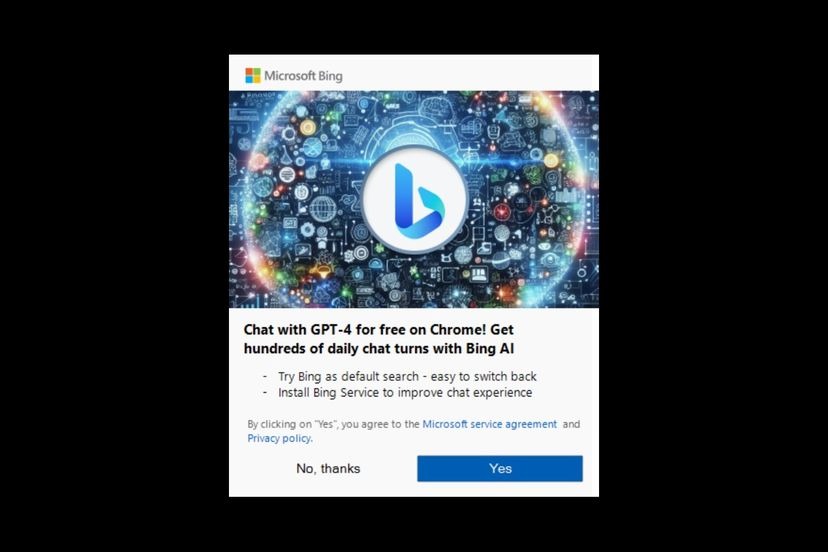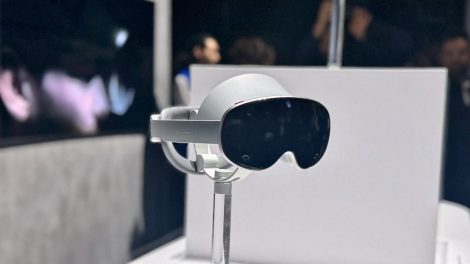In the digital landscape, where user experience and choice stand paramount, Microsoft has ignited a wave of controversy with its latest strategy to promote Bing. Users of Windows 11 have reported encountering pop-up ads within Google Chrome and other browsers, urging a switch to Bing, Microsoft’s search engine. This tactic, aimed at increasing Bing’s user base, has drawn criticism for its intrusive nature, reminiscent of malware tactics, raising questions about user autonomy and the ethics of digital advertising.
Microsoft’s Strategy: Choice or Intrusion?
Microsoft’s use of pop-up ads to advocate for Bing is not a new strategy; however, its application within Windows 11 has brought it under renewed scrutiny. The company posits these pop-ups as a means of offering users a choice, a chance to explore alternative search engine options. Yet, critics argue that the lack of a straightforward opt-out mechanism presents a challenge, complicating users’ ability to maintain their preferred digital settings.
User Reactions: A Spectrum of Responses
The response to Microsoft’s pop-up ads has been mixed. While some users may overlook or quickly dismiss these prompts, others find them a significant nuisance, disrupting their browsing experience. This division highlights the broader issue of balancing promotional strategies with user satisfaction and consent.
Strategies for Managing Unwanted Pop-Ups
For those seeking to rid their browsers of Microsoft’s Bing promotions, several solutions exist. Here are actionable steps to consider:
- Adjust Browser Settings: One effective measure is to delve into your web browser’s settings to disable pop-ups. This approach can provide immediate relief from intrusive advertisements.
- Exploring Alternative Browsers: Users may also contemplate switching to a different web browser less prone to displaying Microsoft-generated pop-ups, offering a more serene browsing experience.

Analyzing the Implications of Microsoft’s Tactics
Microsoft’s push for Bing via pop-up ads on Windows 11 invites a broader discussion about the intersection of marketing, user experience, and choice in the digital realm. The strategy underscores the competitive nature of the tech industry, where companies are constantly seeking innovative ways to capture market share. However, it also spotlights the delicate balance between effective promotion and user respect.
A Question of Choice and Control
At the heart of the debate is the notion of user choice and control over their digital environment. Critics of Microsoft’s strategy argue that true choice is predicated on the ability to easily opt-out or ignore such promotions. The difficulty some users experience in evading Bing’s pop-up ads suggests an area where Microsoft could enhance its approach, aligning marketing strategies with user preferences and consent.
Conclusion: A Path Forward for Digital Promotions
Microsoft’s use of pop-up ads in Windows 11 to promote Bing represents a pivotal moment in digital marketing, underscoring the need for a balance between promotional tactics and user experience. As the tech industry continues to evolve, companies like Microsoft have the opportunity to lead by example, innovating in ways that respect user choice and foster a positive digital ecosystem.
The controversy surrounding Bing’s pop-up ads serves as a reminder of the importance of transparency, consent, and user-centric approaches in the digital age. By prioritizing these values, tech companies can navigate the complexities of digital marketing, ensuring that efforts to inform and engage users are met with openness and appreciation, rather than frustration.
In navigating the pop-up dilemma, users and companies alike are reminded of the value of choice, the importance of user experience, and the potential for innovation in digital advertising. As we move forward, the dialogue between users and tech giants like Microsoft will undoubtedly shape the future of digital promotions, with the hope of achieving a harmonious balance between marketing objectives and user satisfaction.










Add Comment